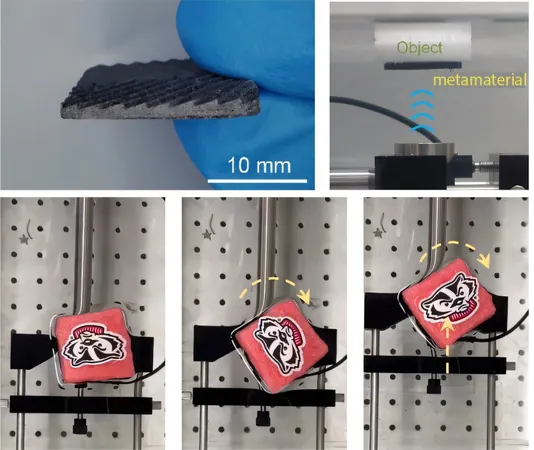
Unlocking the Mysteries of Frontotemporal Dementia: Insights from Baptist Health's Symposium
2025-05-15
Author: Li
A Groundbreaking Symposium on Neuroscience
The Marcus Neuroscience Institute at Baptist Health South Florida is gearing up for an enlightening Brain and Spine Symposium on May 15th to 16th at the Boca Marriott Town Center in Boca Raton. This two-day event promises to showcase the latest in neuroscience breakthroughs, featuring experts such as Timothy O'Connor, MD, who will delve into augmented reality in neurosurgery, and Frank Vronis, MD, who will tackle normal pressure hydrocephalus and shunt procedures. Mark your calendar for the second day, which will include insights from movement disorder specialist Sameea Husain, DO, on innovative Parkinson's disease treatments, along with Peter Gliebus, MD, addressing the complexities of Frontotemporal Dementia (FTD).
A Deep Dive into Frontotemporal Dementia with Dr. Peter Gliebus
Ahead of the symposium, Dr. Peter Gliebus recently shared his expertise on frontotemporal dementia’s intricate clinical landscape in an interview with NeurologyLive®. He shed light on the pressing challenges of early diagnosis, the diverse pathologies associated with FTD, and the urgent need for specialized treatments. As an authority in the central and peripheral nervous system's disorders, Gliebus emphasized the importance of disease-modifying treatments and the transformative strides being made in genetic research.
What Makes FTD So Complex?
FTD stands out as one of the "big three" cognitive disorders, affecting millions worldwide. While significant knowledge exists, substantial unknowns remain. FTD is a heterogeneous disease, stemming from various pathologies that can manifest similarly. Clinical observations reveal a spectrum of symptoms: some patients exhibit behavioral changes such as emotional dysregulation, while others struggle with language or motor control issues, including symptoms resembling Parkinson's or ALS.
The Road Ahead: Research and Therapeutics for FTD
Exciting developments are on the horizon, but they come with challenges. Current research is focusing on specific proteinopathies, which complicates treatment accessibility. Unlike Alzheimer's, where a broader screening approach is feasible, FTD requires precise identification of pathological types. As Dr. Gliebus noted, although we are on the cusp of new therapies, they will initially target only select FTD subtypes.
Personalized Care: Tailoring Strategies for FTD Patients
Managing FTD symptoms today is all about personalization. Each patient presents unique challenges that guide their treatment. For those displaying behavioral symptoms, caregiver training becomes crucial, aimed at techniques for de-escalation and distraction. Medications like SSRIs and anxiolytics may offer relief. Speech and language therapy comes into play for language difficulties, while occupational therapy shines in cases with significant motor symptoms.
The Future of FTD Research and Treatment
Looking forward, the research spotlight must focus on developing biomarkers to identify specific protein pathologies more effectively. Although current diagnostics can reveal brain atrophy, understanding the underlying protein involvement remains elusive unless a genetic mutation is identified. As Dr. Gliebus asserts, advancements in early detection methods are vital, along with the need for targeted treatments tailored to distinct FTD subtypes.


 Brasil (PT)
Brasil (PT)
 Canada (EN)
Canada (EN)
 Chile (ES)
Chile (ES)
 Česko (CS)
Česko (CS)
 대한민국 (KO)
대한민국 (KO)
 España (ES)
España (ES)
 France (FR)
France (FR)
 Hong Kong (EN)
Hong Kong (EN)
 Italia (IT)
Italia (IT)
 日本 (JA)
日本 (JA)
 Magyarország (HU)
Magyarország (HU)
 Norge (NO)
Norge (NO)
 Polska (PL)
Polska (PL)
 Schweiz (DE)
Schweiz (DE)
 Singapore (EN)
Singapore (EN)
 Sverige (SV)
Sverige (SV)
 Suomi (FI)
Suomi (FI)
 Türkiye (TR)
Türkiye (TR)
 الإمارات العربية المتحدة (AR)
الإمارات العربية المتحدة (AR)